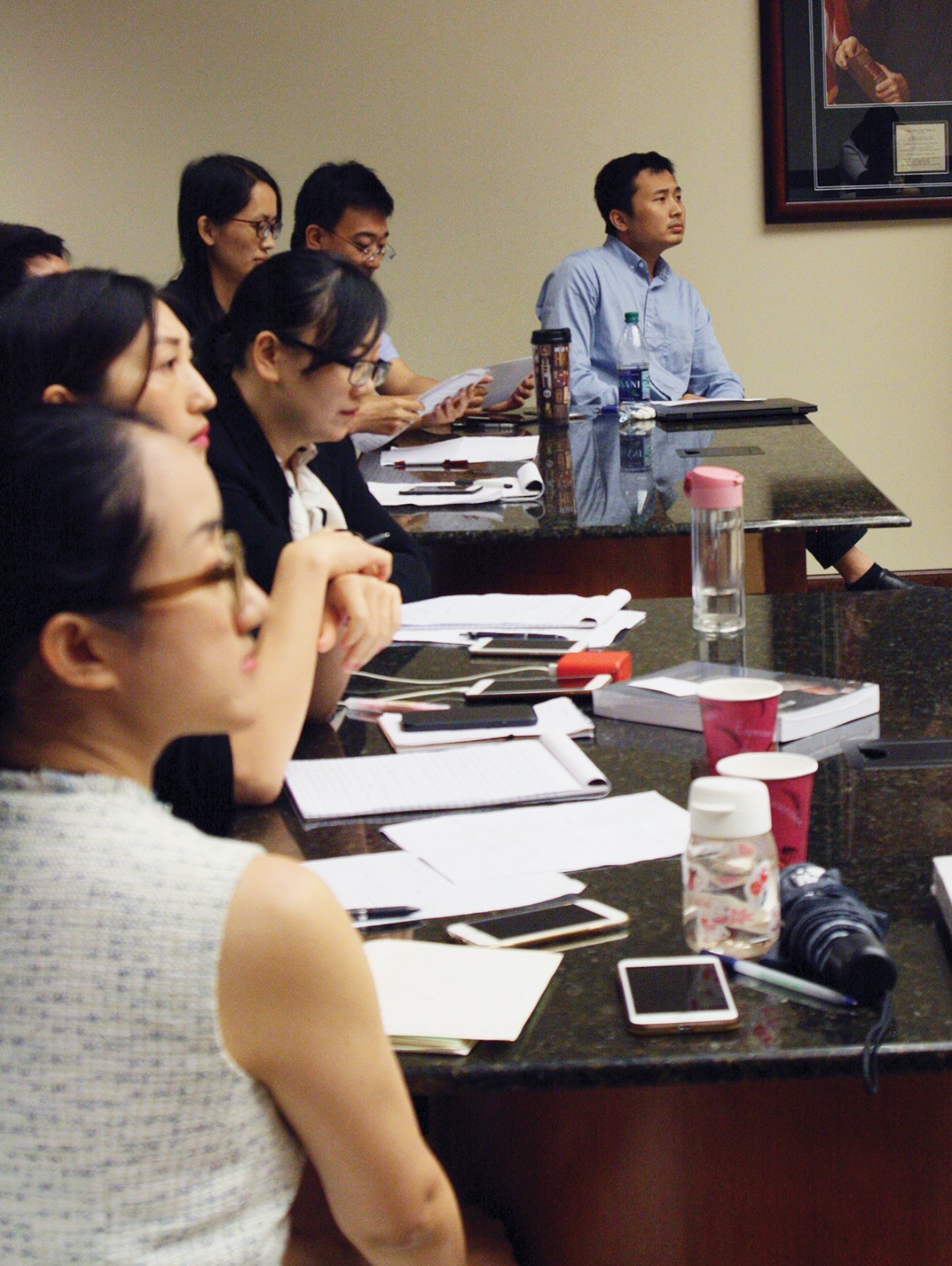City University judges examine jury trials
"This partnership is a wonderful way to expand our international footprint." - Phoebe Stevenson

The judges who arrived from Hong Kong came with questions. How do elected judges who receive campaign contributions keep bias from creeping into their work? Does it make financial sense to have jury trials for civil cases involving car accidents when no one was even injured? How does support for the Second Amendment persist in the face of so much gun violence?
The month-long summer program welcomes students from City University of Hong Kong, mostly early- to mid-career professionals, who are pursuing a master of laws degree while working or apprenticing as judges. This was the fourth time Emory Law has hosted the program, which gives Chinese judges the opportunity to learn about the United States while sharing their experiences with Emory faculty and staff, as well as legal professionals in the community.
“There are obvious differences in our judicial systems,” said Annie Deets, the adjunct professor and public defender who oversees trial advocacy for the program, noting that there are no jury trials in Hong Kong. “The finder of fact is different, but the search for truth is universal. ... The idea of justice is universal.”
Deets was moved by the students’ determination, during the weeklong trial advocacy course, when they demonstrated their ability to try a case despite language and culture barriers. They worked especially hard on their opening and closing statements. “Their skepticism toward our system seemed to wane as the program went on,” she said. “Overall, they seemed impressed.”
The students observed a criminal trial, a civil trial, and jury selection, all at the DeKalb County courthouse. Rhani Lott 10L, adjunct professor of law and former program administrator for the Kessler-Eidson Program for Trial Techniques, recruited faculty, adjunct professors, and alumni to participate in the program. She also arranged casual meetings with prosecutors, civil and criminal defense attorneys, and local judges.
“We wanted to create this interactive experience by really getting them out into the community,” Lott said.
Students visited the Georgia State Capitol, the Georgia Supreme Court, and the Martin Luther King Jr. National Historic Site, as well as Washington sites including the US Capitol and the US Supreme Court. Joseph Hicks 02C 10L held a breakfast for students at Venable LLP in Washington.
Jennifer Mathews, professor of practice, taught a three-day Constitutional Law class and was impressed with how motivated her students were to learn as much as they could about the US legal system. The path to judgeship is different in Hong Kong, where attorneys typically get on a career track at a young age and work as an apprentice.
Mathews started the class by surveying the students about what constitutional law issues they found most interesting, and their responses revealed a deep engagement with US law and contemporary politics. For example, they were interested in gun control and the Second Amendment as well as search-and-seizure issues under the Fourth Amendment. They were also fascinated by the different US processes used to select judges - including electing them.
Phoebe Stevenson, senior associate dean for finance, administration, and international strategies, and a Hong Kong native, said the program is an important piece of Emory Law’s burgeoning relationship with City University of Hong Kong. “I am excited about how our program has become so experiential, incorporating so much real-life experience,” Stevenson said. “This partnership is a wonderful way to expand our international footprint.”



